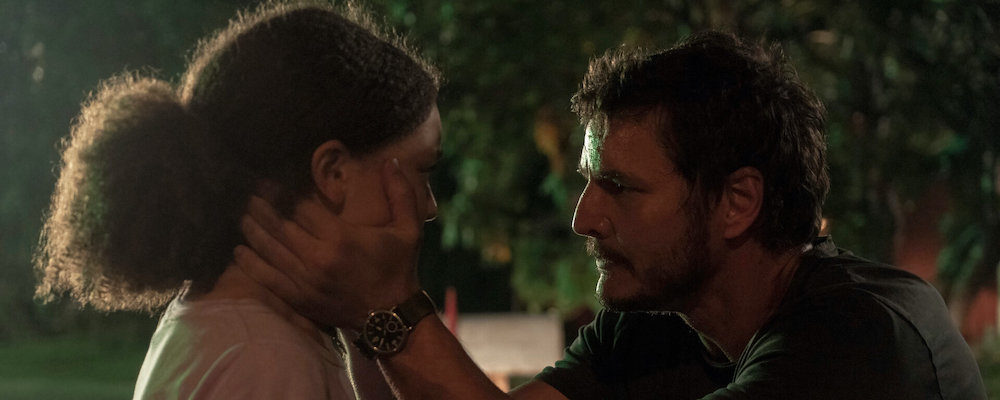‘The Last of Us’ Adapts Acclaimed Video Game Into a Poignant Apocalyptic Thriller
Alci Rengifo
A specific cultural moment in popular entertainment can open doors that have been stubbornly difficult to figure out. One of those doors has been the adaptation of video games into convincing dramatic material. Because games are already complex narratives designed for the full participation of the player, turning them into successful movies or shows has proven infamously elusive. HBO’s “The Last of Us” proves it can be done. Like so many of its predecessors, the series arrives after years of the concept being in development hell. After the Sony and Naughty Dogs game became a hit in 2013, it languished as a project that went through multiple directors, including major names such as Sam Raimi. Much depends on who is running the show and here creator Craig Mazin teams up with Neil Druckmann, one of the game’s co-creators, to craft an apocalyptic ride that is both gritty thriller and poignant drama.
Those who have played the game will recognize how the season begins following the game’s own early chapters. Joel Miller (Pedro Pascal) is a contractor in Austin and single father to Sarah (Nico Parker). On the news there are reports of an emerging fungal infection called Cordyceps. As tends to happen in disaster stories, Joel doesn’t notice much until the infection strikes his neighborhood. The sweet older neighbors who were friends with Sarah go berserk and eat each other. Planes begin to fall out of the sky, fighter jets roar by and troops are deployed. Joel and Sarah drive out searching for safety but tragedy strikes when Sarah is killed in a shootout. Cut to 20 years later and the world is mired in desolation. Joel does odd jobs around dystopian Boston, including burning the corpses of infected victims. On the side he also works with a smuggler named Tess (Anna Torv). They are trying to assemble materials in order to drive west and find Joel’s missing brother, Tommy (Gabriel Luna). A dangerous opportunity arises when the couple is pressured by a local rebel group, Fireflies, to transport a girl named Ellie (Bella Ramsey), who holds a secret ability that can change the world.
For those unfamiliar with the game, “The Last of Us” might sound like a high-end take on “The Walking Dead.” It is certainly in that tradition but indeed, on an elevated scale. On a TV level this is almost a production comparable to recent films like “Everything Everywhere All at Once,” at least in the sense that it finds new depths in a dominant pop genre. Its tone is closer to apocalyptic imaginings like “The Road,” where intimate themes about family, survival and bonds are explored through the idea of civilization collapsing. The first episode refuses to play it safe, introducing one of those classic images of working class American life suddenly rocked by the viral catastrophe. We would think this will turn out to be a father-daughter drama about Joel and Sarah making it through the chaos. Instead, the narrative tragically kills her, evoking how in reality, cataclysmic events are both unpredictable and also very wrenching for those impacted. Mazin also helmed HBO’s acclaimed “Chernobyl,” so he knows how to combine the unthinkable with human drama.
The kind of characters in “The Last of Us” is all classic dystopian essentials. Pascal’s survivalist father is placed next to rebels fighting the shadowy powers that be. Merle Dandridge plays the Fireflies leader, Marlene, with great grit. There is the usual talk of how the young girl Ellie has some kind of ability that could hold the key to overthrowing the ruling powers, etc. The material is simply written stronger, more coherent and convincing than the usual end-of-the-world series. The action takes a back seat to the more human angles involving Joel’s lingering trauma from losing his daughter and now wondering where his brother is. Pascal gives him a certain ruggedness, but also the haze of someone who is near losing all hope. Ellie is herself a fascinating mystery with her rebelliousness and mistrust. Who is she? Where does she come from? Surrounding environments feature the expected roaming troops, some of whom like to buy drugs from Joel. Such material is written with more patience and set up.
After everything that has happened since the pandemic shook our world in 2020 and continues to cast a shadow over global life, it is inevitable that a viewer will be able to draw easy allegories or analogies from “The Last of Us.” Like HBO’s “Station Eleven,” it’s a fantasy that speaks eerily to us now, but more in the tone of books like Max Brooks’s “World War Z.” Infected, ravenous neighbors seem fit for George Romero, but now have a potent fictional symbolism. Like Brooks’s book (and not the movie adaptation), “The Last of Us” is entertaining while taking itself seriously in how vividly it imagines its catastrophes. Destroyed Boston is not overdone but feels like what a major, abandoned American city would feel like after a zombie-like outbreak. Joel and everyone else don’t roam around too much like macho heroes, but like emotionally shattered human beings. Even the guerrillas of the Fireflies are a rag-tag bunch clearly in need of funds. “The Last of Us” provides enough moments of intense suspense, but it’s more engaging by taking genre archetypes and turning them into vulnerable people trying to figure out a world gone mad.
“The Last of Us” season one premieres Jan. 15 and airs Sundays at 9 p.m. ET on HBO.

